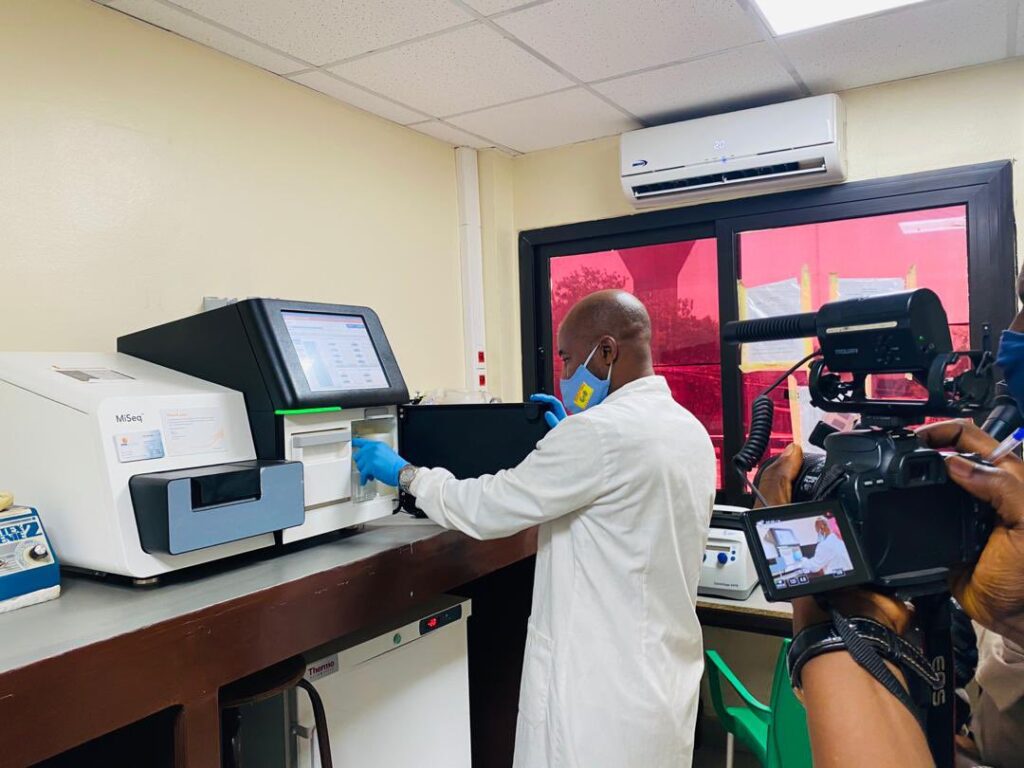ADF STAFF
Public health experts are bracing for yet another COVID-19 wave driven by the eta variant.
First discovered in Nigeria in December 2020, the eta variant (also known by the designation B.1.525) has quietly spread to 70 countries around the world, traveling in the shadow of the more deadly delta variant. In Africa, eta has appeared in Angola, Cameroon, Gabon, Ghana, Mali, Nigeria, South Africa, Tanzania and Uganda.
The variant coincided with a rise in COVID-19 infections in Mali in April 2021, according to Dr. Antoine Dara of Mali’s Malaria Research and Training Center.
“We do not have a full picture of the prevalence of this variant because very limited samples were sequenced in Mali,” Dara told ADF. “However, we think that the increase in the cases around April and May 2021 in Mali might be related to this variant.”
The World Health Organization has named eta a variant of interest — an indicator that it is worthy of study and observation because it is spreading among countries. A variant of interest is a step down from the “variant of concern” label applied to more infectious delta, beta and alpha variants.
While eta’s global footprint is large, its impact has been limited. Experts, however, worry it could hit unvaccinated populations particularly hard.
Researchers say eta carries several mutations similar to those that made the alpha variant effective at entering cells and avoiding the body’s defenses. It remains unclear if eta is as transmissible as its predecessors.
“More work is needed to address this question,” Dara said.
Alpha, beta and delta variants are more transmissible than the original COVID-19 virus, which has allowed them to spread through populations quickly. While they aren’t more deadly than the original, increased transmission has exposed more people to the virus and, consequently, increased deaths.
According to the U.S. Centers for Disease Control and Prevention, eta’s particular mutations mean it may be harder to defeat using naturally acquired antibodies, convalescent plasma from previously infected people or lab-developed monoclonal antibody treatments.
Dr. Anban Pillay, deputy director-general of South Africa’s national Department of Health, told Parliament’s Public Health Committee that the eta variant does not seem to be as virulent as delta but urged caution. Eta appeared in small numbers in Western Cape, Guateng, and KwaZulu-Natal provinces earlier in the year but receded starting in June.
“We obviously must watch this,” Pillay said.

